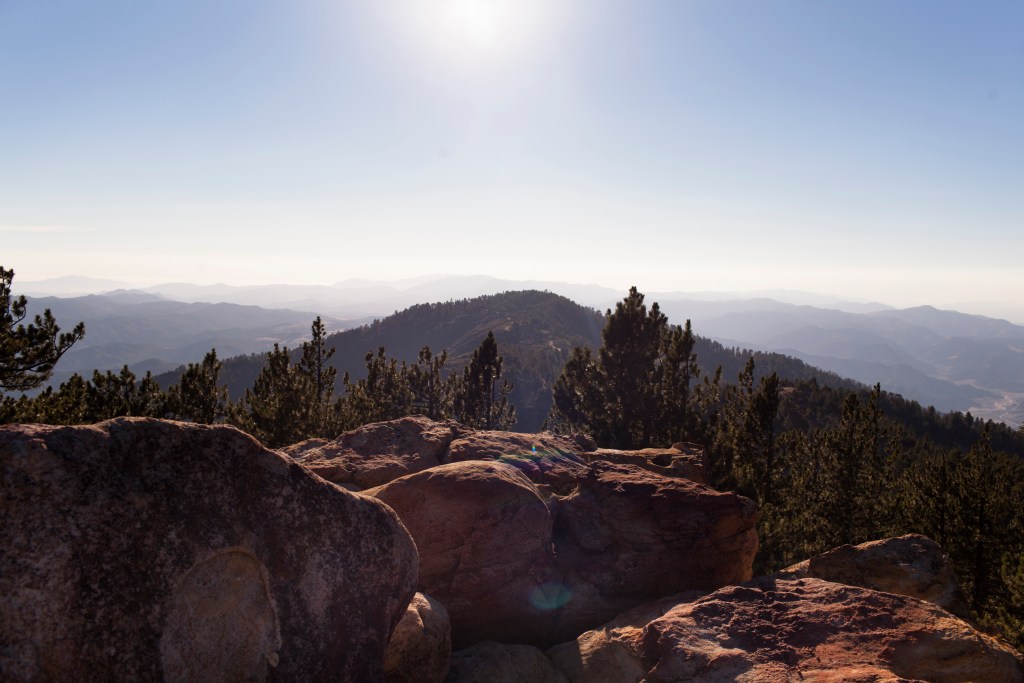In early June, the U.S. Forest Service announced a project to thin out more than 700 acres of conifer forest and chaparral for wildfire prevention purposes in an area of the Ventura County backcountry known as Reyes Peak. Community members have until August 14 to submit a public comment regarding the proposal, which has drawn criticism from conservation organization ForestWatch, as well as members of the Chumash community, who consider the land to be a sacred cultural site.
Bryant Baker, conservation director of ForestWatch, criticized the Forest Service for not committing to a more thorough and robust environmental review process. “The Forest Service indicated that they want to use a couple of loopholes to be able to avoid preparing an environmental assessment or an environmental impact statement,” Baker said. “We believe that is a major problem and has largely been a departure from what the agency has done in the past.”
Though the Forest Service is currently in a scoping process as they consider public comments, they’ve indicated that they wish to treat the project as a Categorical Exclusion (CE) — an exception that allows them to forgo an environmental assessment or an environmental impact statement, so long as the initial scoping period provides no evidence of significant environmental effects.
“No matter what level we use, whether it turns out to be a CE or it turns into an environmental assessment or an environmental impact statement, we’re going to be doing some level of environmental analysis,” said Gregory Thompson, project leader for the Reyes Peak Project. But Baker emphasized that the problem lies in the level of environmental analysis: CE projects are not nearly as robust in their considerations as projects with environmental assessments or impact statements.
Get the top stories in your inbox by signing up for our daily newsletter, Indy Today.
A substantial component of the project is logging and conifer tree removal. In addition, 300 acres of chaparral removal will take place, which poses a threat to bird species that depend on the chaparral. Other at-risk wildlife includes black bears, mountain lions, bobcats, and numerous plant species.
Marcus Lopez Sr., who serves as the tribal chair of the Barbareño Chumash tribal council, voiced strong opposition to the project, as did his son, Marcus Lopez Jr. The land, called Iwihinmu in Chumashan language, holds sacred ceremonial and historical value to area tribes.
“Los Padres National Forest and their approach as an institution [has] some institutional racist attitudes toward native people in their policies and procedures,” Lopez Sr. said. “When there’s fires and when there’s other activity, they call us after the fact and not firsthand,” he continued, voicing his frustrations at the lack of dialogue and prior, pre-informed consent and consultation of indigenous peoples for projects like these.
Thompson said that Chumash tribal members provided comments during a collaborative meeting and that the Forest Service intends to work with local tribes in the future.
The Lopezes’ assessment of the situation was different, though. “The proposal lacks cultural protections [and] proper consultation, and they put the cart before the horse. When you do an activity in a culturally sensitive area, you lay it out and have cultural monitors or consultants work with the construction companies. This report does not do that,” Marcus Lopez Jr. said.
Following a letter from Congressmember Salud Carbajal and widespread community backlash, the deadline for public comment was extended to August 14 from June 30.
Project information can be found at the U.S. Forest Service site here and the ForestWatch comment portal can be found here.
Every day, the staff of the Santa Barbara Independent works hard to sort out truth from rumor and keep you informed of what’s happening across the entire Santa Barbara community. Now there’s a way to directly enable these efforts. Support the Independent by making a direct contribution or with a subscription to Indy+.

